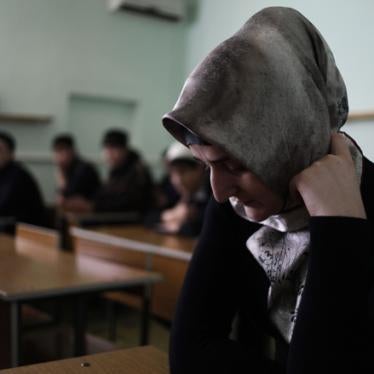Algeria has given Human Rights Watch entry visas for the first time since 2005. Back for the first time in years, I find the families of those “disappeared” during the bloody civil war in the 1990s still holding regular demonstrations, chanting “Give us back our sons” on a sidewalk in downtown Algiers – much as they have been doing for 15 years. The passengers in the cars that inch past probably prefer not to be reminded of the violence that tore their country apart after a military-backed coup interrupted elections in 1992 that Islamists were poised to win. In the ensuing violence, which involved primarily the security forces and armed groups, over 100,000 were killed – most of them civilians.
The demonstrators have aged. Every several months since my last visit, an email arrives announcing that a parent of one of those disappeared has passed away, without having learned the fate of his or her child.
One father, Ambarek Hamdani, traveled the 50 or so kilometers from the village of Heluoia in Blida governorate, in the rain, to join about 40 other demonstrators on October 15. Next March 23 will mark 20 years since his son Djamel disappeared. A young teenager in his father’s poster – perhaps the same age as my own son – Djamel would be middle-aged by now.
Algeria’s 2006 Law on Peace and National Reconciliation offered compensation to families in the more than 7,000 cases of disappearances that the state acknowledges, but it also gave amnesty to the state agents who carried out these crimes. Most families have accepted compensation, a choice that is their right.
Then there are those who reject compensation as long as the state does not disclose the fate of their children. For many, “the truth” means much more than learning if, and how, their children died, and at whose hands. It’s about the state confirming that their child was among the many innocent persons swept up by the security forces during a dirty war against terrorism, merely because they knew someone, were named by a detainee under torture, or had a cousin in an armed group.
Most who refuse compensation understand that their children will likely never return. But they are determined to confront Algeria’s leaders, who insist on “turning the page” with no investigations or prosecutions. All they can do to keep their missing children alive is stand together by the road and brandish photographs of them.









